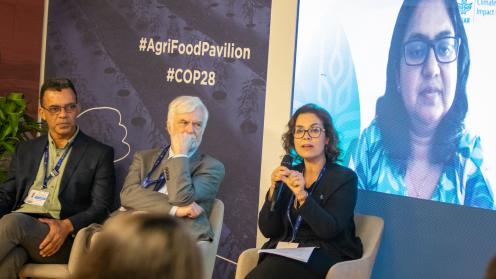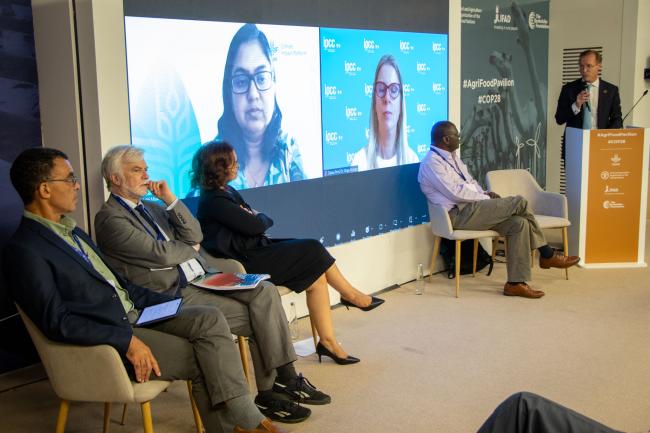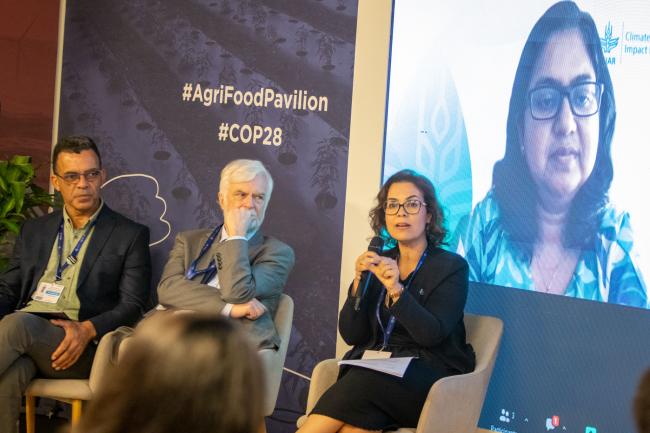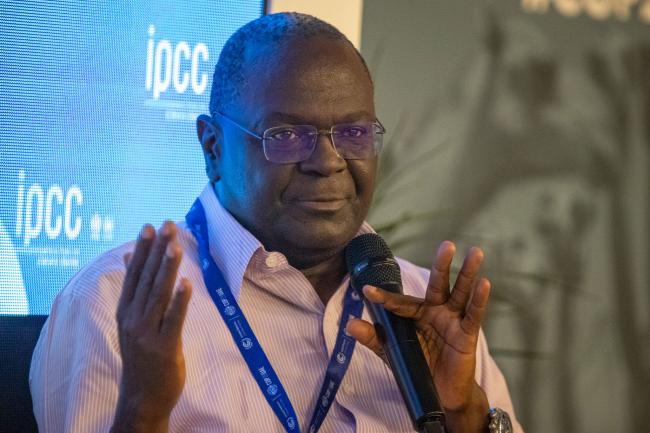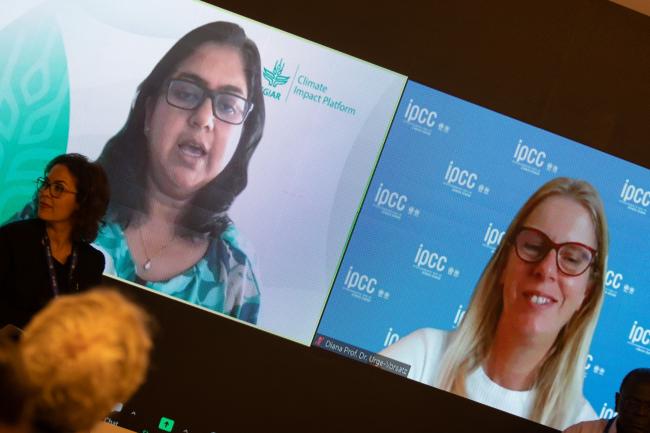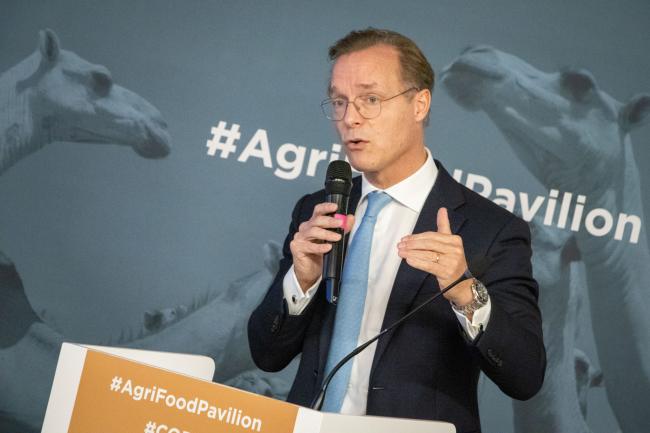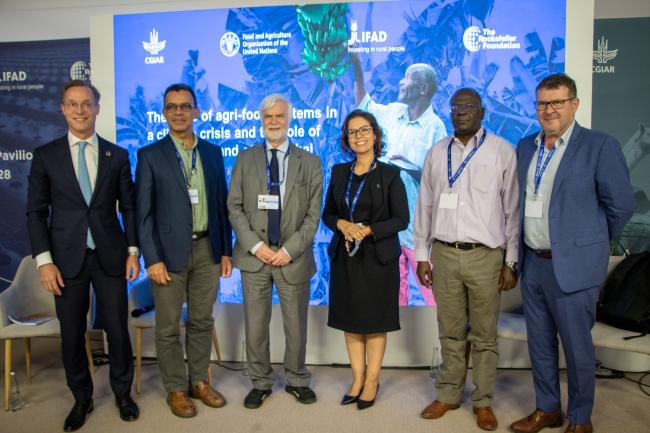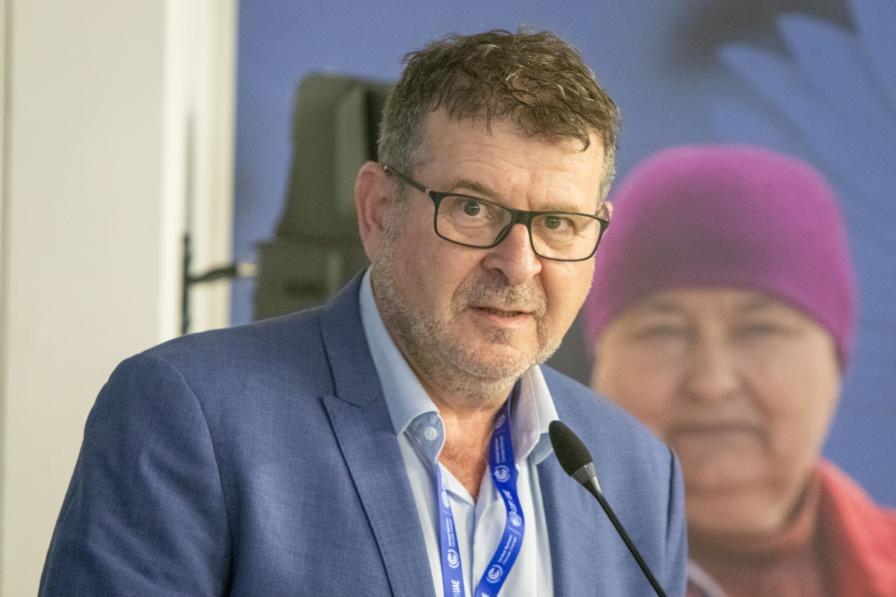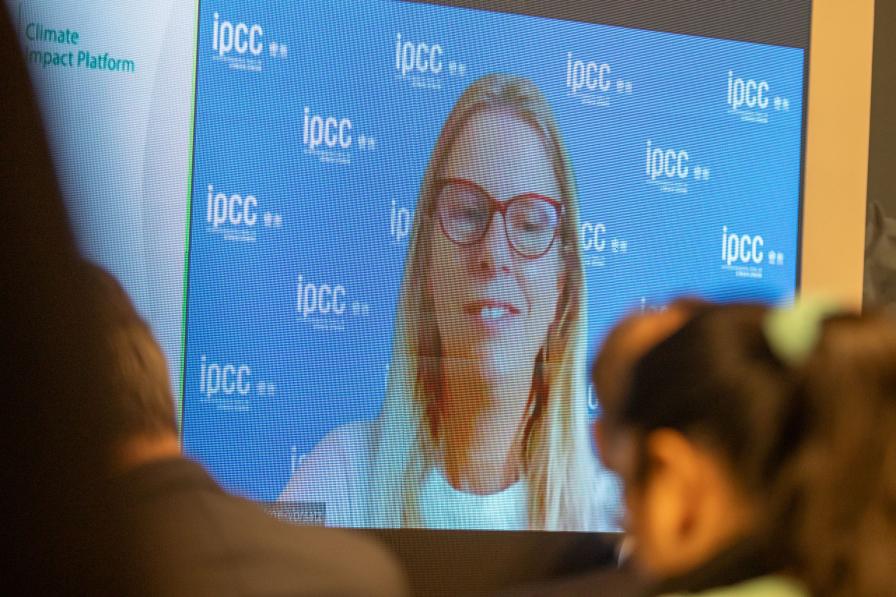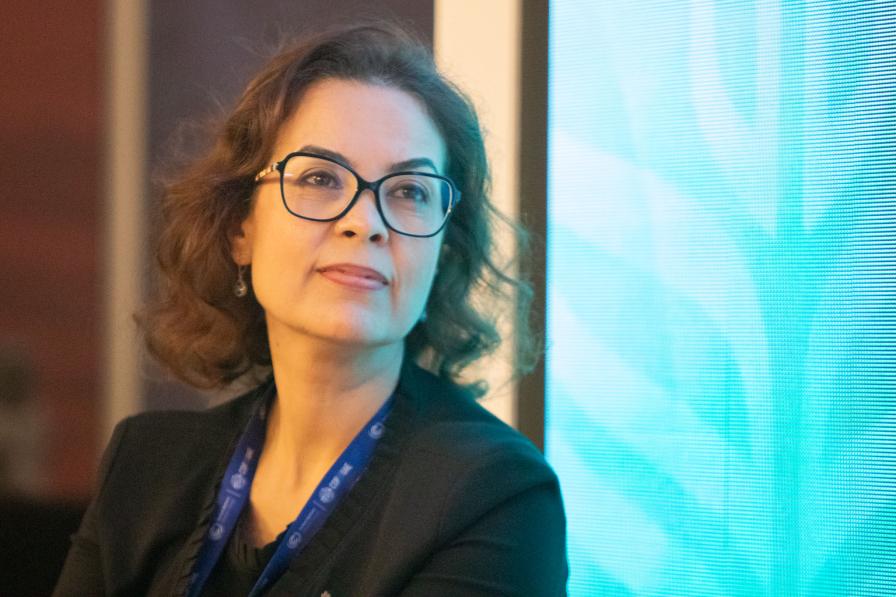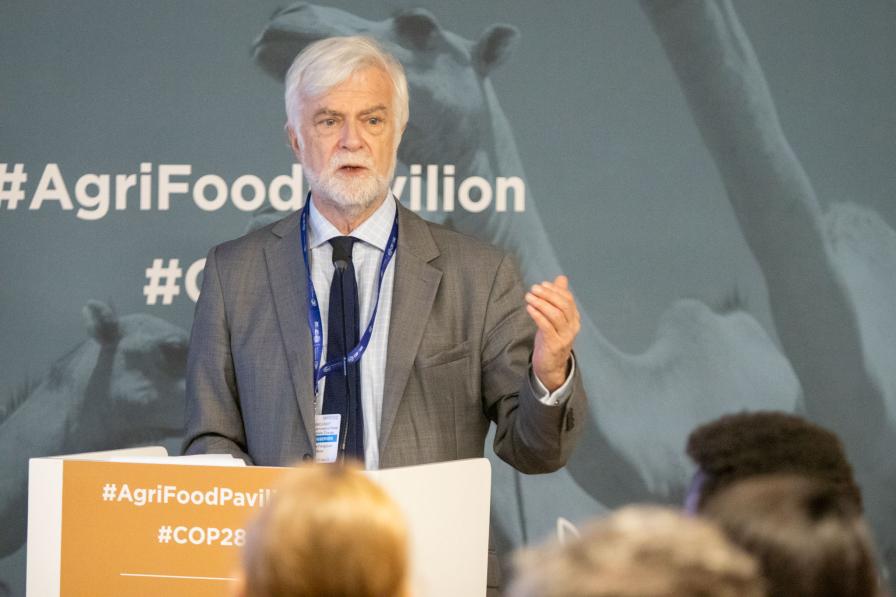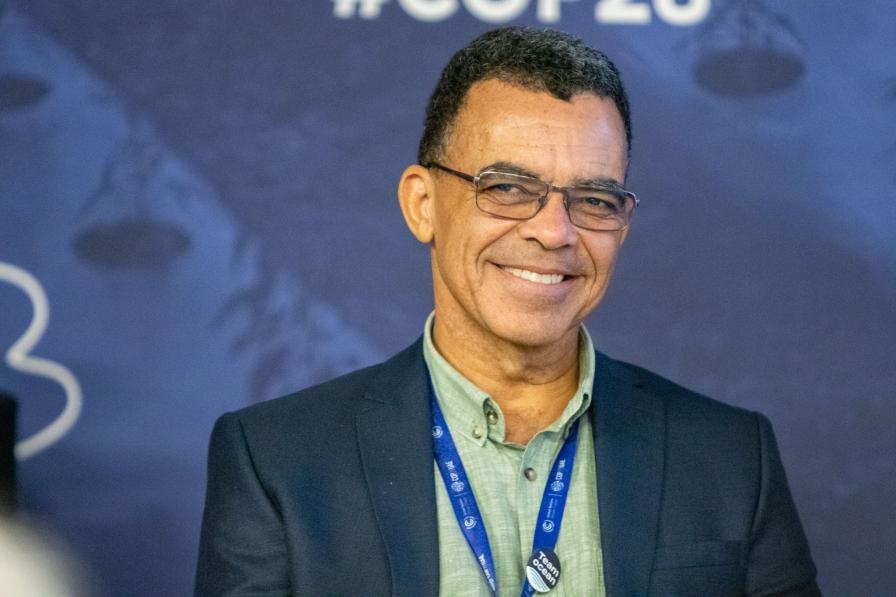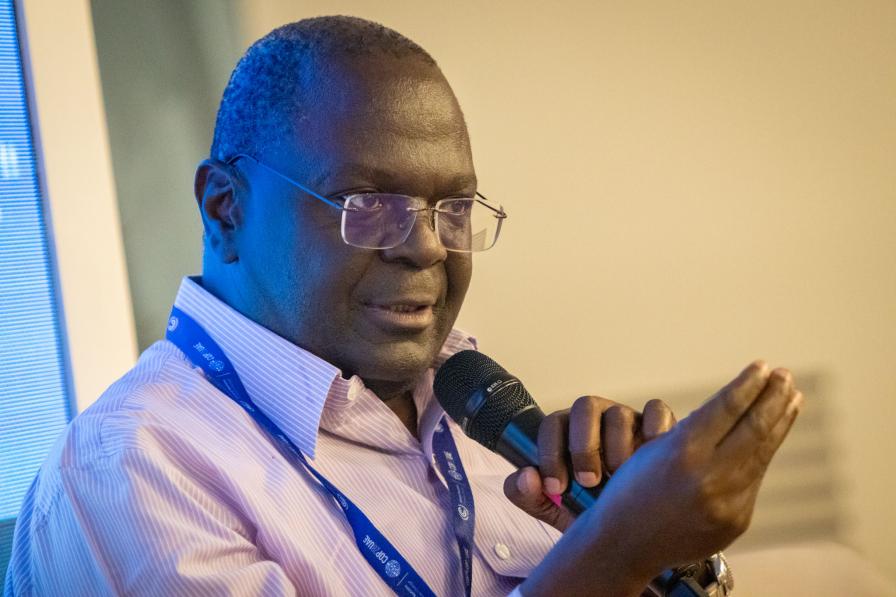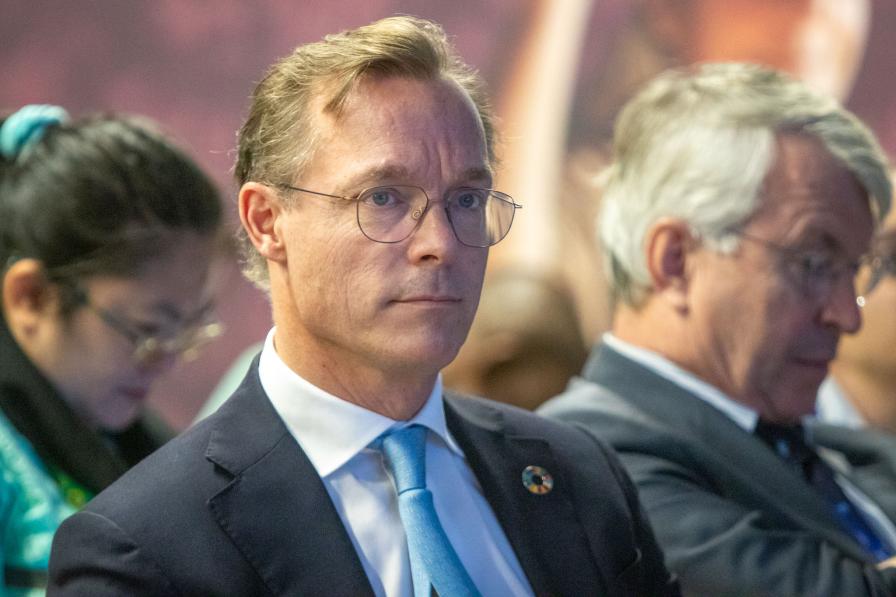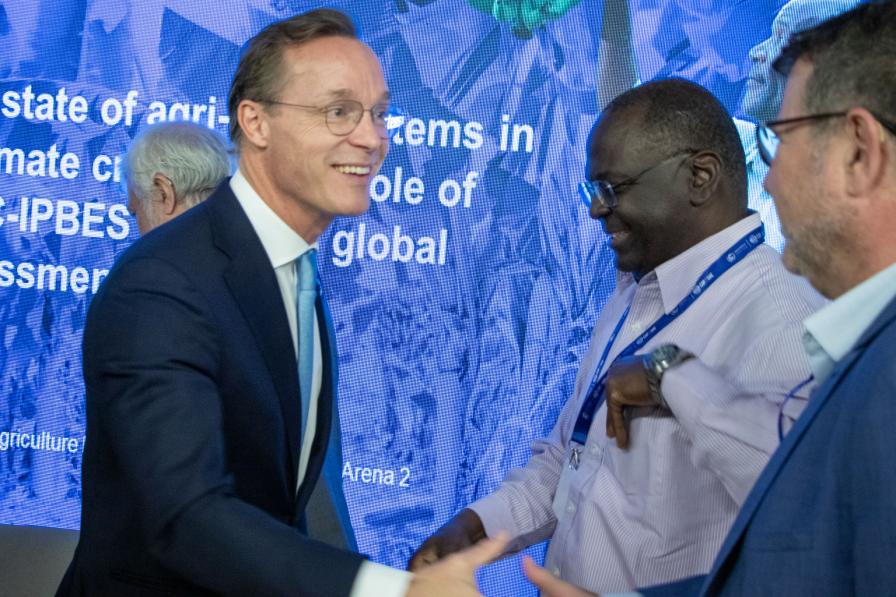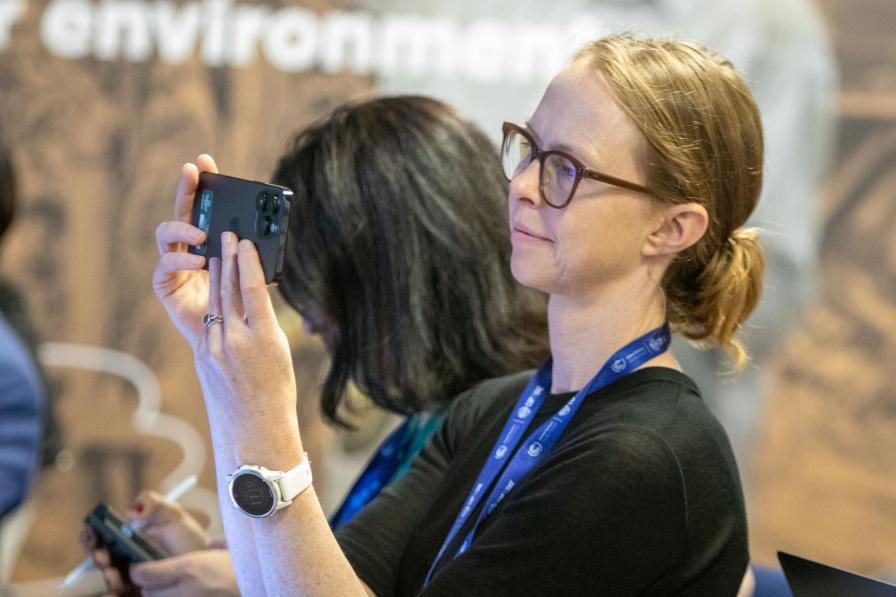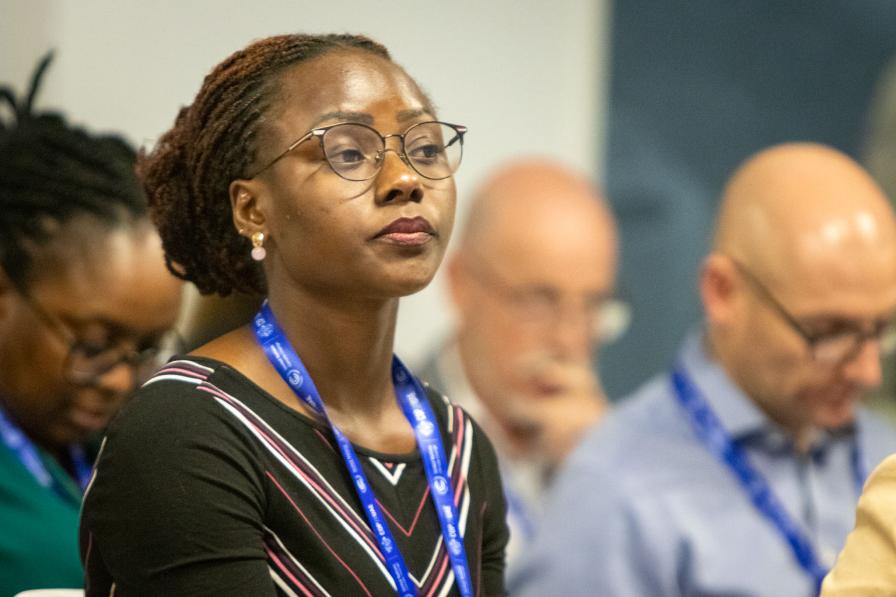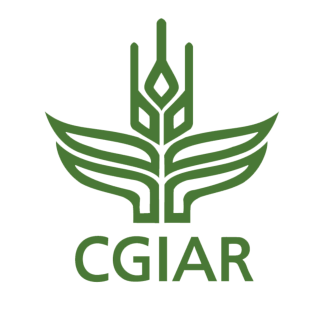Summary
Aligning agrifood systems with sustainable development goals requires balancing climate and food security concerns. This event brought scientists and policy experts together to discuss how to close knowledge gaps and deliver sustainable agrifood systems.
The State of Agri-food Systems in a Climate Crisis and the Role of IPCC, IPBES and other Global Assessments
Agrifood systems contribute to greenhouse gas (GHG) emissions, but pathways to more sustainable agricultural practices do not always align with Sustainable Development Goal 2 (zero hunger), potentially undermining food security for the world’s poorest populations. This event, organized by CGIAR, explored how scientific assessments can help point the way to achieving sustainable agrifood systems that bolster food security.
Moderator Aditi Mukherji, CGIAR, opened the event by stressing the important role that scientific bodies play in providing the evidence necessary to understand the trade-offs and synergies between climate change and food security.
Welcoming panelists and attendees, Patrick Caron, CGIAR, framed the event as an opportunity to discuss ways to strengthen the science-policy interface, improve knowledge ecosystem efficiency, and enhance the inclusivity of knowledge production
In a first round of comments, panelists discussed how to close knowledge gaps, work across science silos, and deliver actionable evidence for climate negotiators.
Jim Skea, Chair, Intergovernmental Panel on Climate Change (IPCC), highlighted the IPCC Special Report on Climate Change and Land as the first IPCC report that thinks in terms of the food system as a whole, which increases attention to issues such as food loss and dietary choices. He noted increased collaboration between IPCC working groups and links to other assessments, such as Intergovernmental Science-Policy Platform on Biodiversity and Ecosystem Services (IPBES) assessments, in the IPCC’s Sixth Assessment Report, and said that such cross-pollination of ideas will be a significant focus of work on the Seventh Assessment Report. Priorities include looking at mitigation and adaptation together, links with biodiversity and food security, more realistic modeling of initiatives, finance in the agrifood sector, and ex post evaluation of policies.
David Obura, Chair, IPBES, stressed the need to look at people and nature together, which is a primary framework for IPBES’ work. This includes taking into account cultures and values, and looking at the potential for positive transformations in how people and nature interact in food production. Obura noted that a forthcoming Nexus Assessment includes a chapter on food that looks at different response options, and he underscored the importance of considering human rights, culture, and intellectual property.
Diána Ürge-Vorsatz, Vice-Chair, IPCC, highlighted biases in Western knowledge production systems and urged integrating a diversity of knowledge systems, including Indigenous Peoples’ knowledge, into scientific assessments. She pointed to an upcoming expert meeting on gender diversity and inclusivity that will help lay the foundation for integrating more diverse knowledge systems into reports.
George Wamukoya, African Group of Negotiators Expert Support, urged providing climate negotiators from developing countries with evidence and information to close gaps between Nationally Determined Contributions and climate science. Wamukoya also noted the need for scientists to work across silos to ensure findings are not contradictory and to offer knowledge products aimed at the private sector to help catalyze local investments.
Ismahane Elouafi, Executive Managing Director, CGIAR, also stressed breaking down sectorial silos to reveal synergies, including between food security, climate change, and biodiversity. By thinking at the system level and linking data points together, Elouafi noted, it is possible to inform local decision making and scale up private sector investments in economically viable ways.
In a second round of interventions, panelists reflected on efforts to improve the diversity of voices in assessments. Skea emphasized the importance of learning from Indigenous knowledge and achieving diversity within geographic regions so that no single country dominates. Obura stressed thinking about how distributional justice and recognition justice are embedded in assessment processes, as well as the importance of investing in diversity.
Wamukoya agreed that single country dominance is a concern, noting that most assessment authors, within Africa, come from South Africa. However, he also pointed to gains in establishing a better base of scientists from Africa who can respond to IPCC assessment scoping calls.
Ürge-Vorsatz noted the need for diversity in nominations for authors of assessments, as well as diversity among scientific peer reviewers. Elouafi highlighted that achieving diversity requires being intentional, including establishing target numbers. She also noted that data mining and artificial intelligence could enhance global South representation.
Closing the event, Jaime de Bourbon de Parme, Climate Envoy of the Netherlands, urged: more cross-pollination between climate and agriculture science; more countries to sign on to the Declaration on Sustainable Agriculture, Resilient Food Systems, and Climate Action; and more of a “clear line” from IPCC assessments on the most impactful actions for food systems. He underscored the importance of putting farmers and local communities at the center of solutions.
Organizers: CGIAR https://www.cgiar.org/
Contact: Nathan Birac | N.Birac@cgiar.org
For more information: https://www.cgiar.org/
To receive free coverage of global environmental events delivered to your inbox, subscribe to the ENB Update newsletter.
All ENB photos are free to use with attribution. For this COP 28 side event, please use: Photo by IISD/ENB | Matthew TenBruggencate.
